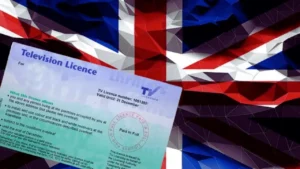When the federal government shut down on October 1, 2025, anxiety rippled through the country. Federal employees braced for missed paychecks, parents feared lapses in childcare subsidies, and retirees — more than 71 million Americans who rely on Social Security or SSI — asked the same urgent question:

Will my benefits stop?
The short answer: no.

Despite the political standoff halting large parts of Washington, the Social Security Administration (SSA) has confirmed that benefit payments will continue on schedule. For seniors, disabled workers, and low-income households, that’s one piece of stability in an otherwise uncertain fiscal climate.
Why Social Security Keeps Running When the Government Doesn’t
Government shutdowns occur when Congress fails to pass spending bills to fund federal agencies. When appropriations expire, departments reliant on discretionary funding must scale back operations — furloughing employees and pausing non-essential services.

Social Security is different.
The program operates under mandatory spending, drawing from the Social Security Trust Funds, which are financed by ongoing payroll taxes under federal law. This funding is not dependent on Congress passing an annual budget.

That means even when Washington stalls, the Social Security system keeps moving.
“Payments to Social Security and SSI beneficiaries will continue uninterrupted,” the SSA stated in its contingency plan. “These funds are not dependent on annual appropriations.”
Also Read UK DWP Officially Announces New Home Ownership Rules for Pensioners
UK DWP Officially Announces New Home Ownership Rules for Pensioners
In short: the checks will still go out — no congressional action required.
What’s Still Operating During the Shutdown?
Although payments are secure, SSA offices nationwide are functioning with reduced staff. Only essential personnel remain to ensure benefits continue flowing and fraud prevention systems stay active.
Here’s what you can still do in person or online:
- Apply for retirement, disability, or survivor benefits
- File or appeal a denied claim
- Report a death (to prevent improper payments)
- Update your address, direct deposit, or citizenship status
- Request a replacement Social Security card
- Replace or report a missing payment
- Change your representative payee
- For SSI recipients: report changes to income or living arrangements
Essentially, any service that ensures payments are made correctly — or prevents fraud — remains active.
What’s Temporarily Paused?
Some lower-priority services are temporarily unavailable until Congress restores full funding. Expect delays in administrative updates and routine appointments.
| Service | Availability During Shutdown |
|---|---|
| Proof-of-benefits letters | Not available |
| Corrections to earnings records | Not available |
| Non-critical field office appointments | Paused |
| In-person Medicare card replacements | Paused |
| General customer service calls | Limited staff; longer wait times |
The mySocialSecurity online portal remains fully operational for most account updates, faster than waiting for office or phone service.
November 2025 Payment Schedule
Even as the shutdown moves through its fourth week, the Social Security and SSI payment calendar remains unchanged.
| Payment Type | Scheduled Date(s) | Notes |
|---|---|---|
| Supplemental Security Income (SSI) | October 31, 2025 | Paid early since Nov. 1 falls on a weekend |
| Social Security (regular schedule) | Wed, Nov. 12 — Birth dates 1–10Wed, Nov. 19 — Birth dates 11–20Wed, Nov. 26 — Birth dates 21–31 | Standard Wednesday rotation; no delays |
| Dual beneficiaries (SSI + Social Security) | SSI: Oct. 31, 2025; Social Security: Nov. 3, 2025 | Standard dual-payment schedule |
Recipients using direct deposit can expect funds by 9 a.m. local time on their scheduled date. Paper checks may arrive 3–5 business days later, depending on postal operations.
Official payment schedules are available anytime at SSA.gov/payment.
How to Avoid Disruptions?
Although your benefits aren’t at risk, administrative slowdowns can cause temporary snags. The SSA recommends a few steps to stay ahead:
Confirm Direct Deposit
Switch to electronic payments if you haven’t already. They’re faster and safer than mailed checks.
Use Your mySocialSecurity Account
Log in at SSA.gov/myaccount to verify benefit amounts, print statements, and update contact information.
Be Strategic About Calls
Expect long wait times at call centers. Use online services for non-urgent matters.
Keep Key Documents Secure
Store your award letters, banking details, and Social Security card in a safe, accessible place.
Watch for Scams
The SSA never emails, calls, or texts asking for your Social Security number or banking information. Any message claiming your benefits are “at risk” is fraudulent.
What About Medicare and Other Programs?
Like Social Security, Medicare continues to operate normally. Hospitals, pharmacies, and medical providers are still being paid. However, administrative and customer service operations may move slower during the shutdown.
Other programs relying on annual appropriations could face interruptions:
- HUD housing assistance — rent subsidies may be delayed
- WIC (Women, Infants, and Children) — nutrition benefits could face gaps in some states
- IRS taxpayer services — reduced staffing for inquiries or refunds
- National parks, museums, and courts — limited operations or closures
Still, Social Security and Medicare remain insulated from these disruptions thanks to their dedicated funding streams.
Why This Shutdown Feels Different
The 2025 shutdown is now one of the most consequential in decades — occurring during an election year and amid high inflation and rising living costs. Unlike shorter shutdowns in 2018 or 2023, this one has lasted weeks, adding pressure to millions of Americans already stretched thin.
For retirees on fixed incomes, knowing Social Security is safe offers reassurance — but also rising frustration.
“We earned those benefits,” said Marcia Daniels, 72, a retired nurse from Ohio. “They shouldn’t be political hostages every time Congress can’t agree on a bill.”
Economists note that while shutdowns don’t halt Social Security checks, they can delay surrounding services and ripple through the broader economy.
FAQs
Will the shutdown delay my Social Security payment?
No. Benefits are funded through payroll taxes and mandatory spending, not annual congressional appropriations.
Are SSA offices open?
Yes, but with limited staff. Essential services continue, while non-critical appointments are postponed.
Can I still apply for benefits?
Yes. Retirement, disability, and survivor applications remain available online and in person.
What if I don’t receive my payment?
Check your bank account or mySocialSecurity portal first. If funds don’t arrive within 3–5 days, call your local office.
Does Medicare stop during the shutdown?
No. Medicare benefits, claims, and provider payments continue as usual.
Bottom Line
Despite the broader government shutdown, Social Security payments remain secure. Checks and direct deposits will arrive on the regular Wednesday rotation — November 12, 19, and 26 — with no interruption expected.
For millions of retirees and disabled Americans, that consistency provides peace of mind amid the political chaos.
As the SSA summarized: “Shutdown or not, America’s seniors will be paid.”

